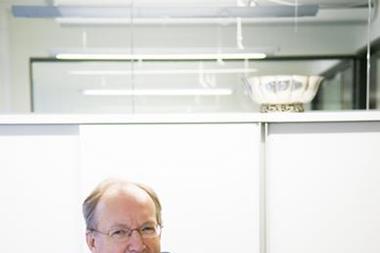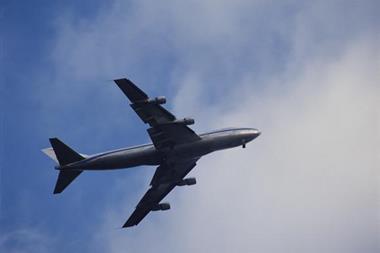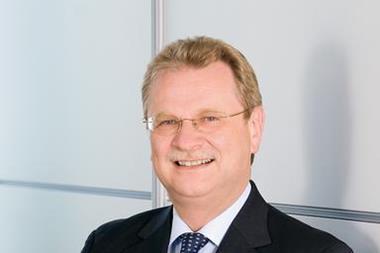A German viewpoint on emerging risk, aviation insurance and terrorism
Ralf Oelßner, vice president, corporate insurance Lufthansa German Airlines and president DVS
What can you tell me about risk management in Germany at the moment?
Ralf Oelßner: One of the hot topics in Germany is terrorism. The recent arrests of terrorists in Denmark and Germany made it clear – as the German chancellor said – that the risk of terrorism in Germany is not theoretical, it is real.
That is why we are very pleased that the Government renewed their cooperation under the EXTREMUS scheme for another two years with the full line of €8bn. We had spoken to the treasury to make it clear that we are in need of that cover.
In this German scheme you have a reliable contractual state, whereas the volatility in the non-German markets is much greater. In the international market there are all sorts of definitions of terrorism. Buyers could find themselves in a situation where they are not quite sure if they are covered. Another obvious consideration is that if there is a claim to deal with, the German insurance companies are always easier to negotiate with than insurers outside of Germany.
The issue of terrorism is presumably a top priority for you in your work with Lufthansa?
Ralf Oelßner: It’s not only a question of Lufthansa. It’s a question of all these so called DAX companies [the top 30 major companies trading on the Frankfurt Stock Exchange] and beyond; anybody could be hit by terrorism. And it’s not just the property damage, it’s an issue of business interruption as well.
What are the main issues that the airline industry is currently dealing with?
Ralf Oelßner: The market for insurance is actually relatively soft, due to the fact that there is a constant influx of new capacity. Partly because the claims situation in civil aviation ever since American went down in Queens has been extremely good [American Airlines Flight 587 crashed into the Belle Harbor neighbourhood of Queens in New York City on November 12, 2001, it was the second deadliest US aviation accident to date]. And partly because a lot of analysts have advised underwriters to spread their risks and go for non-correlated business, ie non-correlated to windstorm. In aviation insurance there is usually no connection to windstorm. These two factors ensure there is constant interest for additional capacity to get into the aviation insurance market.
What about problems arising from the pressure on the airline industry to ‘go green’?
Ralf Oelßner: I’m pleased to say that Lufthansa has been on the environmental topic for years. We have done a lot and we have told people about it, but we can’t force people to take notice. There is a constant pressure on the airline industry to become greener, I don’t know if we consider it a constant pressure which is unbearable. People need to fly to keep the world going. A lot of cargo is transported by air, and don’t forget that a lot of production plans are geared to on time delivery. If the freight doesn’t appear on time any more, the whole production plant comes to a halt.
What kinds of things has Lufthansa been doing?
Ralf Oelßner: For instance engines which consume only a fraction of what the old engines did, processes in the exhaust chambers and in the top chambers of the turbines which make sure that most of the carbon-related stuff is burnt. All sorts of things like that. Take off and landing patterns in addition.
Are you preparing for climate change liabilities?
Ralf Oelßner: Well instead of insuring it we would rather mitigate against it within the company. And only if we found a residual risk, would we look at insurance.
Are risk managers taking emerging risks, like pandemics, seriously enough?
Ralf Oelßner: I think they are yes. They train for it; they go through dummy pandemics and they ask the old risk management question, what if? So at the end of the day they don’t have to say, if only. That’s risk management in a nutshell. I know a lot of major companies that deal with the risk of pandemics very seriously.
It is also one of the prominent risks in aviation. We prepare our staff and we have fallback procedures. For example, if you have traffic into one area with a load factor below twenty and you can’t get enough capacity into that country to get all the people out that want to leave, you can imagine the problems that would ensue. These are, to a large extent, operational problems not insurance problems.
Can you tell me about your top ten risks, which you presented at the DVS (Deutscher Versicherungs- Schutzverband eV) symposium in Munich?
“The good thing about commercial variety is that people can do deals
Ralf Oelsner
Ralf Oelßner: At the top of the list were: lack of drinking water, lack of food, lack of fuel, and lack of natural resources. Possibly as a corporation you can’t mitigate against a certain risk, because your leverage is just too short. There’s not much one enterprise can do to mitigate lack of fuel for instance. But they could sit down and ask what if fuel dries up, should we go into alternative fuel, or should we go into new equipment?
It was just a suggestion not to look at corporate risks only, because it is a somewhat blinkered approach. But, instead, to be aware of the fact that corporate risk is embedded in a number of really serious issues. Lack of fuel for instance, illegal immigration, and overpopulation; all of these are risks. That doesn’t mean that any of them is insurable.
Risk management starts with awareness; you have to be aware that there are things out there that can turn very nasty. We have seen it recently – what you might call the new Russian roulette – when Putin decided he would turn off the natural gas supply. My intention was to suggest to the risk management community, be aware.
The lack of availability of fuel must be a major concern in the airline industry?
Ralf Oelßner: I don’t think it’s only airlines. I think the whole of the global transport system worries about sufficient availability. Of course it is a huge concern. We are dependent on fossil fuels to a large extent, but I’m sure in the future there is going to be no end of alternative energy supplies. I’m not a technician myself so I don’t have extensive knowledge, but I’m sure other fuels will be available at sensible pricing using deployed technology. We have to keep these things in mind.
Obviously the price for existing fuel is going to increase as the reserves of fossil fuels become exhausted. I don’t think risk managers can really do much about it, but they have to keep an eye on fuel as a corporate risk. There is no lack of other corporate risks, but fuel can be an existential risk for any corporation in transport. So you have to keep a close eye on it.
How do you think the insurance industry is at reacting to emerging risks?
Ralf Oelßner: It is very laudable that people sit down and say that these are the risks, is there anything that we can do to insure against it? It’s still the decision of the buyer if they want to buy it at those rates, but to make something available as a new product for a risk that seems to intensify with every month is good, it should be welcomed.
What is the situation with co-insurance in Europe?
Ralf Oelßner: We just recently had a discussion with the European Commission in Brussels and their view is that they have no problem at the moment with what they call ad-hoc co-insurance.
The Commission is fully aware of the fact that large companies – what they call large corporate clients (LCC) – have to cover risks which are far too big for one insurer. I think co-insurance, ie having a number of insurers on the face of your policy, supports the development of competition because you can pick potential new leads.
If you offer a cover all to one insurer – and he chooses all sorts of reinsurers that you don’t know anything about – that is a different situation. It is certainly not a situation to the liking of the LCCs, because it cuts down competition and the LCCs’ options. This ad-hoc co-insurance is done under the custody and control of the LCCs. They don’t go to one insurer and say get me the capacity for XYZ, they tell them which underwriters or which insurers they would like to see on the face of their policy.
How do you think Solvency II will impact on the Continent?
Ralf Oelßner: It certainly will change the scenery, and to a certain extent we’ll have a state-instigated technical underwriting. So, possibly we will have less commercial variety. The good thing about commercial variety is that people can do deals. If insurers all operate according to the same prescriptions and limitations, commercial variety may not be available to the same extent.
What is the current state of D&O liability in Germany?
Ralf Oelßner: Since its introduction in the mid-1980s the D&O insurance market has certainly grown, but to start with it was very slow. What changed things in Germany was corporate governance legislation that basically forced the supervisory board to pursue executives who seemed to have gone against the rules of good business judgement. That certainly put forward the D&O class of business. The problem in Germany is that we have this very specific rule that the supervisory board must go against the executive management if they think that something is wrong because otherwise they themselves will be in the dock. All of the large D&O claims in Germany so far, stem from that. It’s not shareholders claiming against executives.
How has the 2006 AGG (Allgemeines Gleichbehandlungsgesetz) law on equal treatment affected employment practices liability in Germany?
Ralf Oelßner: I personally don’t think that the AGG is dealing with amounts, as yet, which it’s worth taking out a separate policy to cover. If you can manage to cover some aspects of AGG claims within your EPLI policy, which you may already have for the US and the UK, that’s fine. I don’t really see the need for a standalone AGG policy just yet. The claims are more of a nuisance; they are nothing which could seriously jeopardise the company.




















No comments yet